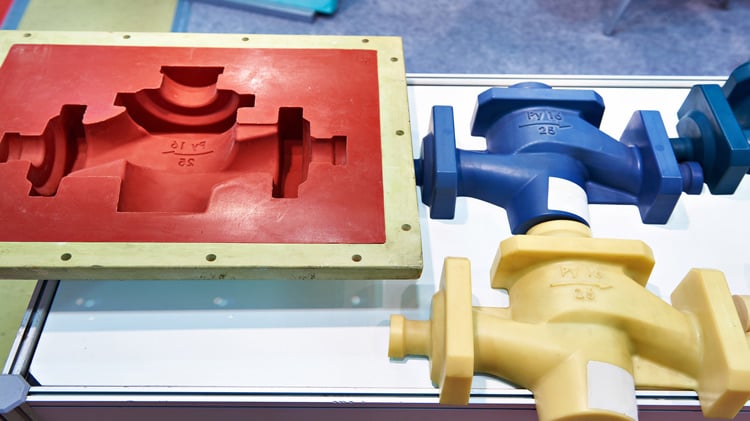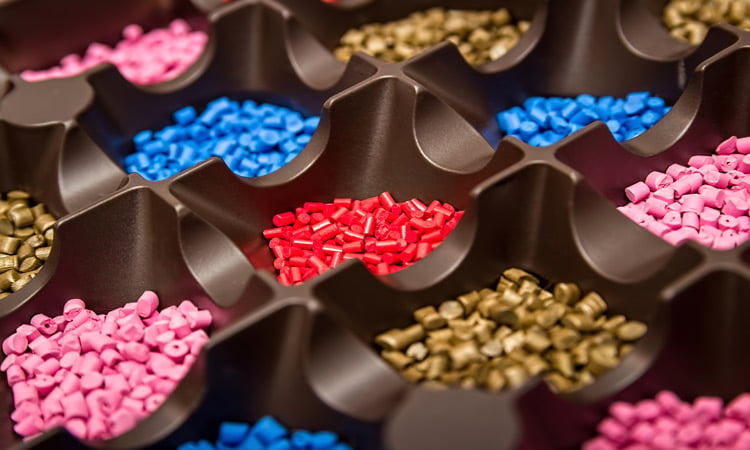
Ultimate Guide To Low-Volume Plastic Injection Molding
If you've ever found yourself in the position of needing a small number of plastic parts for your company, you've likely wondered how you can go about getting them made. Low volume plastic injection molding is an affordable way to produce high-quality components in low numbers when compared with other manufacturing processes like machining or casting.
Low volume plastics are typically used in medical, automotive, and consumer electronics industries for prototype parts or as functional components. Low volume plastic injection molding also allows you to do multiple iterations on a product design without having to go into production with it each time, which saves money and time!
This guide will teach you everything you need to know about low volume plastic injection molding and why it matters.
What is Low Volume Plastic Injection Molding?
Low volume injection molding refers to the production of small batches (typically less than 1000 pieces) of plastic parts. Similar to low volume production methods for metal or wood, Low volume plastic injection molding is usually done with a smaller dimensioned machine that can be used for prototyping.
Low-volume products are typically produced as prototypes or functional components, such as those found in medical devices or automotive parts.
What Is Low Volume Plastic Injection Molding Used For?
Low volume plastic injection molding is usually used in the prototyping stage of product development as well as the functional testing stages. Low volume plastic injection molding is also used to produce end-use parts for low production runs, such as those used by Apple and Tesla.
Low-volume plastics can be used for a variety of applications, including:
- Prototyping
- Product Development
- Low Volume Production
Benefits Of Low Volume Plastic Injection Molding
Low volume plastic injection molding is a great solution for organizations that need to create frequent prototypes. This can include medical industries as well as automotive industries.
Low volume manufacturing services are frequently sought after by businesses looking to produce small batches (typically less than 1000 pieces) of products.
As well, businesses looking for a cost-effective alternative to the high upfront costs often associated with traditional plastic injection molding may also benefit from low volume manufacturing services.
What is Low Volume Plastic?
Low volume plastics are typically used in prototyping and product development processes, where the parts produced with low-volume injection molding machines can be tested for functionality or fit before they go into full production.
Low volume materials are often not available at retail outlets but are custom-made for the customer's product. Low volume plastics are often produced with high levels of detail, which makes them useful in prototyping and development processes where fit is important.
What Plastics Are Used In Injection Molding?
The most common plastics used in low volume plastic injection molding are as follows:
- acrylic (PMMA)
- acrylonitrile butadiene styrene (ABS)
- nylon polyamide (PA)
- polycarbonate (PC)
- polyethyelene (PE)
- polyoxymethylene (POM)
- polypropylene (PP)
- polystyrene (PS)
- thermoplastic elastomer (TPE)
- thermoplastic polyurethane (TPU)
Many companies use ABS in their low volume plastic injection molds, as it’s tough and durable. ABS can be used to make a large range of items, such as automotive components and medical devices and instruments.
That said, low volume injection molds can be designed for a variety of different plastics.
Other common low volume injection molded plastics include Polycarbonate (PC), Nylon, and PPSF. These plastics are also tough and durable, but also have different properties than ABS plastics.
Nylon is resistant to many chemicals, making it ideal for medical manufacturing applications. Nylon is a good choice for parts that need to be able to hold up well in a chemical environment.
Polycarbonate (PC) has a high heat tolerance which makes it well suited for automotive components or machine parts that are exposed to high temperatures repeatedly in the course of normal use.
PPSF is resistant to extreme heat and chemicals, making it ideal for harsh environments.

What Low Volume Plastic Should I Use?
The type of low volume plastic you use will depend on your application requirements and whether you are prototyping or producing.
Acrylic plastics are affordable, versatile materials that are very easy to work with. That said, they cost more than glass and scratch easily. As well, its service temperature is too low for some industrial applications.
ABS is an engineering-grade thermoplastic that is more expensive than acrylic, but offers greater strength and rigidity. It also has a higher service temperature of up to 100°C (212°F) making it suitable for industrial applications that require exposure to high temperatures repeatedly in the course of normal use.
Polycarbonate is strong and naturally transparent, making it suitable for applications that require an optically clear material with excellent dimensional stability. It is able to maintain physical properties at a high temperature as well as offer great impact strength.
How To Get Started With Low Volume Plastic Injection Molding
If you want to get started with low volume plastic injection molding the first step is adequate tools. Low volume injection molding requires the use of new molds, which can be purchased online or at your local machine shop.
You'll also need to have a prototype created to test out the molding process. Low volume plastic injection molding is fairly simple in theory, but there are some intricacies that can make or break your part depending on how well they're executed.
Once you've created a successful prototype for low-volume plastic injection molding you'll need to send it out to an experienced plastic injection molding company.
It is important to make sure you are using a reliable supplier for your plastic injection molds, because they can be expensive to remake if they don't turn out as expected.
Contact RCO Engineering To Learn More
RCO Engineering specializes in low volume plastic injection molding for businesses of all kinds. We have experience creating products for aerospace, automotive, and defense industries and can help turn your ideas into a reality.
Learn more about RCO Engineering's injection molding services and contact us to get your project started.

Comments